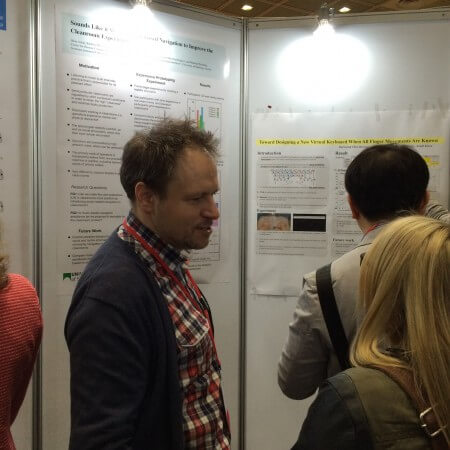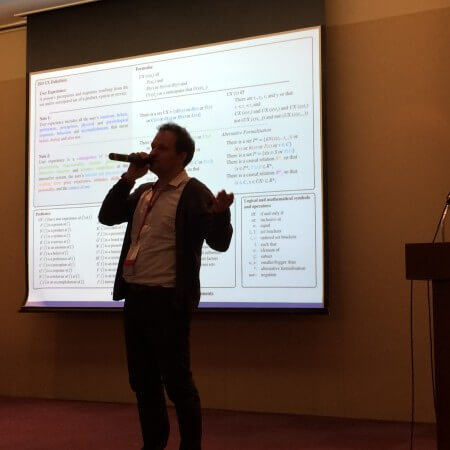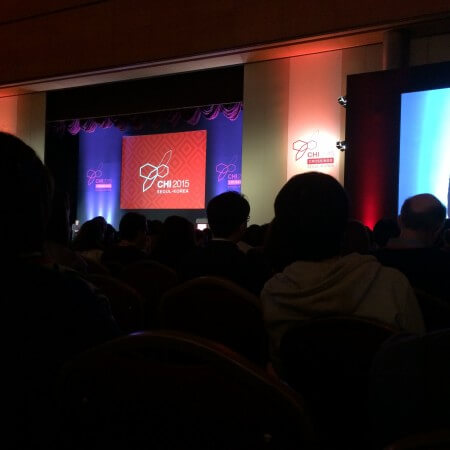At CHI 2015, Alina Krischkowsky, Verena Fuchsberger, Martin Murer, and Alexander Meschtscherjakov presented work from the Center for Human-Computer Interaction. CHI 2015 took place in Seoul, Korea, from April 18th to 23rd, and attracted around 2700 attendees from all over the world.
Alexander gave a talk about “A Formal Analysis of the ISO 9241-210 Definition of User Experience” during the alt.chi session “Augmentation”. Within this talk, Alexander discussed potentials for an improvement of defining User Experience, a work that has been done by Alexander Mirnig, Alexander Meschtscherjakov, Daniela Wurhofer, Thomas Meneweger, and Manfred Tscheligi.
Furthermore, Alexander and Manfred Tscheligi co-organized a workshop on “Experiencing Autonomous Vehicles: Crossing the Boundaries between a Drive and a Ride” (together with Dalila Szostak from Intel, Rabindra Ratan from Michigan State University, Roderick McCall from University of Luxembourg, Ioannis Politis from University of Glasgow, and Sven Krome from RMIT University). Therein, they discussed user experience (UX) when driving in autonomous cars with industry experts and researchers, in order to draw the future landscape for research in terms of methodological issues, human factors, entertainment, social driving, and novel user interface approaches.
Alexander also presented a poster on “Sounds Like it Works: Music-based Navigation to Improve the Cleanroom Experience”, which was authored by Ilhan Aslan, Barbara Weixelbaumer, Bernhard Mauer, Daniela Wurhofer, Alexander Meschtscherjakov, and Manfred Tscheligi. This work-in-progress originated from the industry cooperation within the Christian-Doppler Laboratory on “Contextual Interfaces”, aiming to investigate how music could help workers in a factory navigate.
Alina, Verena, and Martin took part in several workshops. Alina participated in a workshop on “Designing for Sharing in Local Communities“, discussing her work on social roles and role expectations when it comes to older adults’ support practices. Verena presented how the context could act as a material physical data representation in a workshop called “Exploring the Challenges of Making Data Physical“; Martin took part in a workshop called “Knowledge Production in Interaction Design“, discussing how IxD styles could be an intermediary form of knowing.


